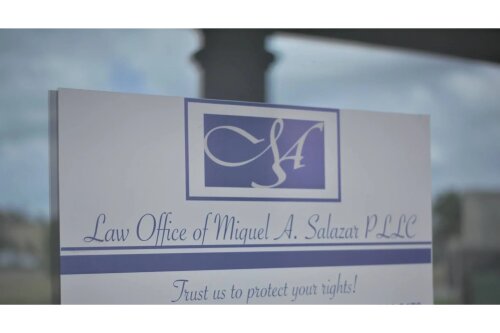Best Annulment Lawyers in Indiana
Share your needs with us, get contacted by law firms.
Free. Takes 2 min.
Free Guide to Hiring a Family Lawyer
Or refine your search by selecting a city:
List of the best lawyers in Indiana, United States
About Annulment Law in Indiana, United States
Annulment is a legal process in Indiana that declares a marriage null and void, as if it never legally existed. Unlike a divorce, which ends a valid marriage, an annulment retroactively invalidates the marriage due to specific legal reasons. This process is governed by Indiana state law and has unique requirements and consequences. Individuals may seek an annulment when particular circumstances have undermined the legal validity of their marriage from the start.
Why You May Need a Lawyer
Seeking an annulment in Indiana can be more complex than obtaining a divorce. Here are some situations where legal help is essential:
- You are unsure whether your marriage qualifies for an annulment based on Indiana law.
- There are property, debt, child custody, or spousal support issues connected to your marriage.
- The other party does not agree to the annulment or contests the proceedings.
- You need to gather or present evidence to prove the grounds for annulment.
- You want to protect your legal rights and understand your responsibilities if the marriage is found void.
A lawyer can guide you through the legal process, help prepare necessary documentation, and represent you in court if needed.
Local Laws Overview
Annulment in Indiana is governed by specific state statutes and common law principles. Indiana law recognizes only limited grounds for annulment, which generally focus on circumstances present at the time of marriage. Some key aspects include:
- Void Marriages: These are marriages considered invalid from the start. Grounds include bigamy (one spouse is already married) or close blood relations between spouses.
- Voidable Marriages: These are legally valid until a court declares them invalid. Grounds may include fraud, duress, mental incapacity, one party being underage without proper consent, or one party being unable to consummate the marriage.
- Legal Consequences: An annulment restores both parties to their legal status before the marriage. However, the court may still address issues such as child custody and support if children are involved.
- Statute of Limitations: There is no specific time limit for seeking an annulment, but waiting too long can make the process more difficult, especially in proving certain grounds.
Frequently Asked Questions
What is the difference between annulment and divorce in Indiana?
Annulment declares a marriage invalid as if it never existed, while divorce ends a legally valid marriage. Annulment requires specific legal grounds, whereas a divorce can be granted for irreconcilable differences.
What are the grounds for annulment in Indiana?
Common grounds include bigamy, incest, fraud, one party being underage, lack of mental capacity, duress, or incapacity to consummate the marriage.
Can annulment be granted for short marriages?
Length of marriage is not a ground for annulment. The focus is on legal grounds such as fraud, bigamy, or incapacity at the time of marriage, regardless of its duration.
How do I start an annulment process in Indiana?
You must file a petition for annulment in the county court where you or your spouse reside. The judge will review evidence and decide whether to grant the annulment.
What happens to children after an annulment?
The court addresses issues like child custody, visitation, and child support in the same way as in a divorce to protect the interests of the child.
Is there a time limit to file for annulment in Indiana?
There is no strict deadline, but waiting can create evidentiary challenges. It is best to pursue an annulment as soon as the underlying issue is discovered.
Do I need to prove wrongdoing to get an annulment?
You must establish legal grounds-such as fraud, coercion, or incapacity-that existed at the time of marriage. Evidence and testimony are often required.
Will I lose rights to property or support if the marriage is annulled?
Because the marriage is declared void, property division is typically handled differently than in divorce. However, the court may still consider issues like property rights and spousal maintenance in certain cases.
Can both parties agree to an annulment?
Yes, both parties can agree, but the court still requires proof of legal grounds for annulment. Consent alone is insufficient.
If I got married in another state, can I get an annulment in Indiana?
You can file for annulment in Indiana if you or your spouse live in the state. The marriage’s validity will be assessed under Indiana law.
Additional Resources
If you need more information or assistance, consider these resources:
- Indiana Legal Services: Provides free or low-cost legal help to eligible individuals.
- Indiana State Bar Association: Offers lawyer referral services and educational material.
- Indiana Judicial Branch, Self-Service Legal Center: Features forms, guides, and resources for family law matters.
- Local county courthouse or clerk’s office: Staff can provide procedural information and court forms.
Next Steps
If you believe you have grounds for an annulment in Indiana, consider these steps:
- Collect all documents related to your marriage, including your marriage certificate and any documentation of the grounds for annulment.
- Consult with a family law attorney familiar with annulment cases in Indiana to assess your situation and receive personalized legal advice.
- Prepare to file a petition for annulment in the appropriate Indiana county court.
- Follow your attorney’s guidance, especially if your spouse contests the annulment or if there are complicating factors such as children or property.
- Stay informed about court procedures and attend all hearings related to your case.
Seeking legal assistance early ensures that your rights are protected and helps you navigate Indiana's annulment process with greater confidence.
Lawzana helps you find the best lawyers and law firms in Indiana through a curated and pre-screened list of qualified legal professionals. Our platform offers rankings and detailed profiles of attorneys and law firms, allowing you to compare based on practice areas, including Annulment, experience, and client feedback.
Each profile includes a description of the firm's areas of practice, client reviews, team members and partners, year of establishment, spoken languages, office locations, contact information, social media presence, and any published articles or resources. Most firms on our platform speak English and are experienced in both local and international legal matters.
Get a quote from top-rated law firms in Indiana, United States — quickly, securely, and without unnecessary hassle.
Disclaimer:
The information provided on this page is for general informational purposes only and does not constitute legal advice. While we strive to ensure the accuracy and relevance of the content, legal information may change over time, and interpretations of the law can vary. You should always consult with a qualified legal professional for advice specific to your situation.
We disclaim all liability for actions taken or not taken based on the content of this page. If you believe any information is incorrect or outdated, please contact us, and we will review and update it where appropriate.
Browse annulment law firms by city in Indiana
Refine your search by selecting a city.













